I first got clued in to the concept of collaboration over competition before Christmas last year, joining forces with a whole bunch of ethical bloggers and brands to create collaborative content in a way that hadn’t really been done in our industry before. Since then the mantra has continued to stick with me in a very active way. As I wrote before Christmas:
‘We don’t believe in competition in our community, (we like each other too much for a start) so we decided to join forces, bringing together our resources and ideas to create a sustainable sisterhood; enabling us to talk about brands we believe are making a difference, whilst also getting the chance to work together’
Whilst this doesn’t always look like creating content together I’m much more deliberate in my interactions with other eco creatives these days. Many of us know each other, but I’ve been putting more effort into transitioning these relationships into friendships, rather than ‘colleagues on the internet’. We do inhabit a weird working space, aka our bedrooms, but I think this only increases the value in our relationships with each other. Not only is it vital to have other people who understand the kind of mental and emotional labour that goes into maintaining a blog where you’re writing about multiple injustices it’s also just nice to know that, even though you’re doing this mainly on your own, you still have people out there who’ve got your back. Whether it’s helping fill in knowledge, sharing resources, or picking you up when you feel burned out and disheartened (which we all go through, no matter what social media might suggest).
My favourite kind of collaborative effort, however, is when we’re able to help each other be better. Not in an attacking way, pointing out all our flaws and the ways we’ve failed, but in a way that helps us grow and become improved versions of ourselves. The interactions that leave us more informed, more equipped and more compassionate than before. My dealings with other bloggers, as well as some brands who’ve become friends, in this sustainable lifestyle world have helped me become a person I’m proud to be. Ok, sometimes I’m a bit less fun because I can’t turn my ‘ethical radar’ off when talking about certain topics, but at the same time I think I’m more helpful. I’m more switched on to my passions and achievable ways to meet them, I’m more able to acknowledge life’s complexities and the grey areas. Through interacting with a variety of people in the ethical fashion space I’m more able to understand the subtleties and differences within the movement, and to move away from simplistic or reductionist thinking. I’m able be open to correction, and to actually do something about it.
The coolest thing is that more recently this hasn’t just been confined to blogs. I’ve seen brands getting on board with this kind of collaborative drive to push each other to bigger and better, and it’s really exciting. In particular I noticed this through the relationship between Know The Origin and Jollie’s Socks, two lovely sustainable brands that have been on my radar for months now.
This is their story of collaboration.

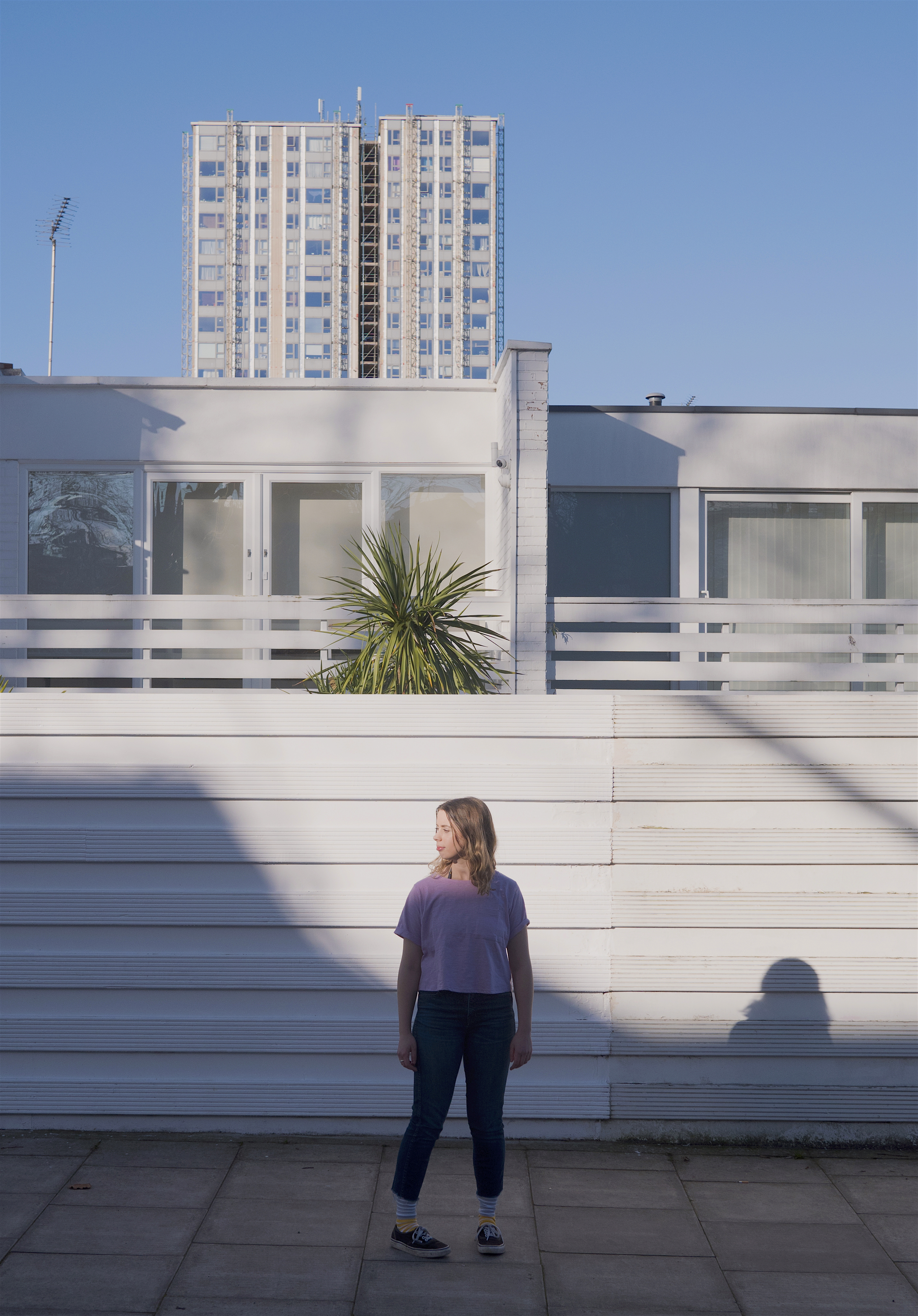

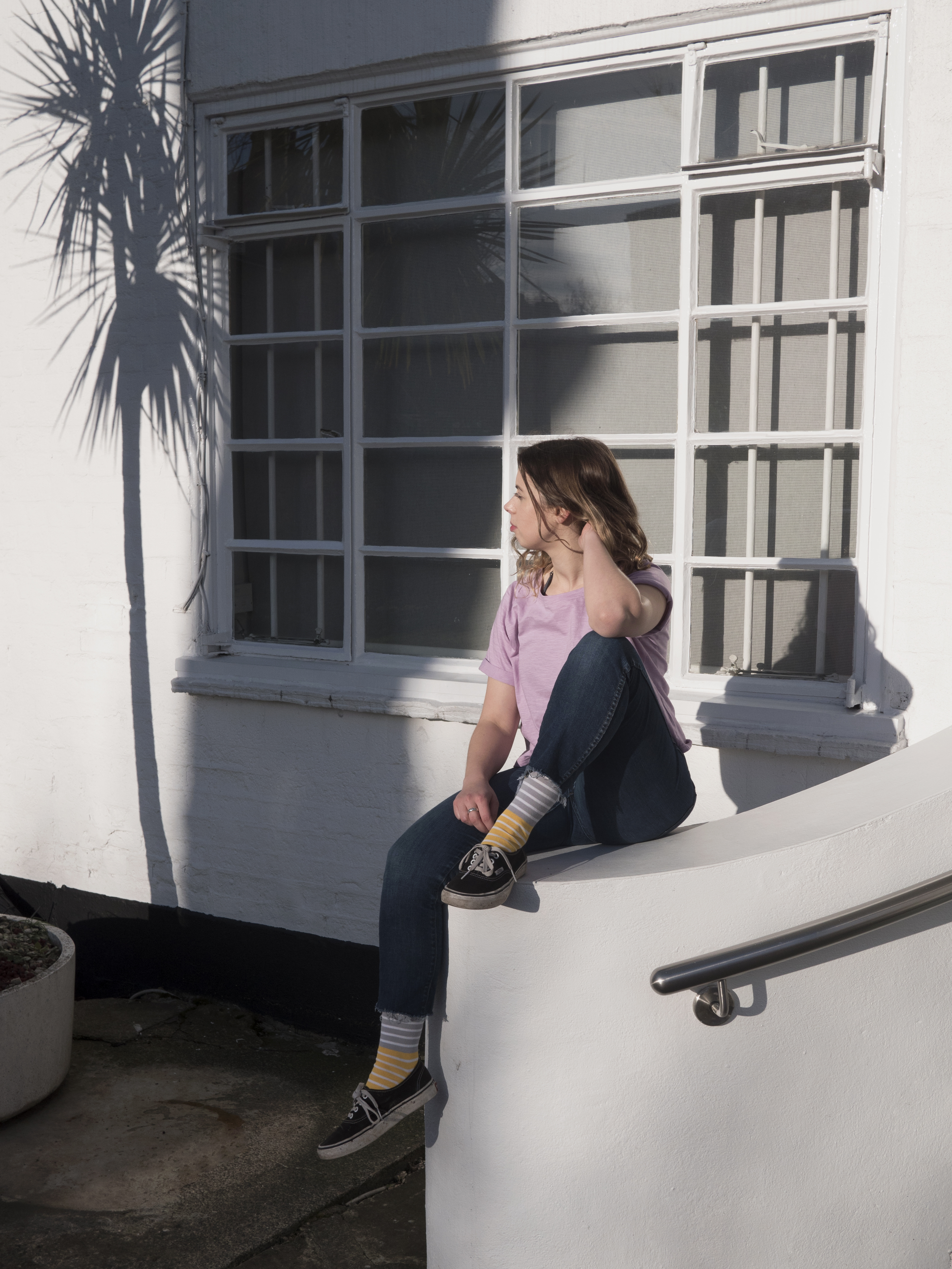
The Brands
If you’ve been following sustainable fashion for a while now, it’s likely you’ve heard of Know The Origin, or seen their beautiful sustainable basics sported by a blogger or two. Charlotte, their founder, became passionate about ethical fashion after spending time with the survivors of the Rana Plaza factory collapse. Having studied fashion buying and merchandising herself she decided to set up her own company; creating ethical and affordable clothing whilst supporting those working in the right way, as well as working to change the industry overall. You can trace Know The Origin’s supply chain from seed to garment, and they work incredibly hard to be transparent. They use fairtrade organic cotton, dye in a zero waste unit using Oeko-Tex & GOTS certified dyes and their clothes are GOTS and FLO certified, whilst employees at various stages in production are treated well and paid above living wage, with benefits such medical insurance and pensions, and some are represented by Centre of Indian Trade Unions (CITU). In fact their website has an incredible wealth of transparent information, so if you want to know something, they probably have the answer readily available.
While Know The Origin sell a variety of pieces I think they’re best known, and most well loved, for their super soft, super versatile tees. Here you can find me wearing the carnation pink and arctic blue fairtrade tees.
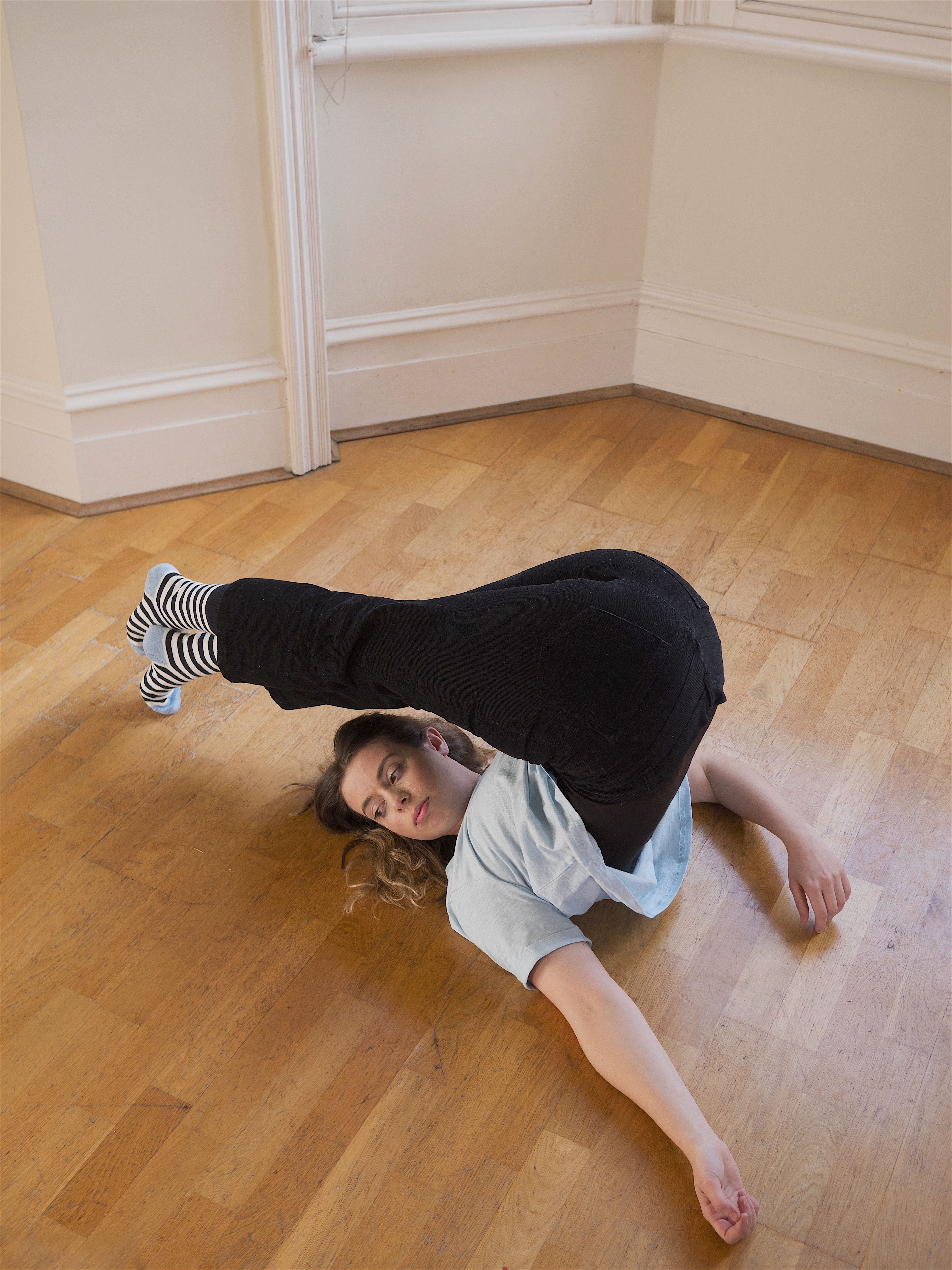
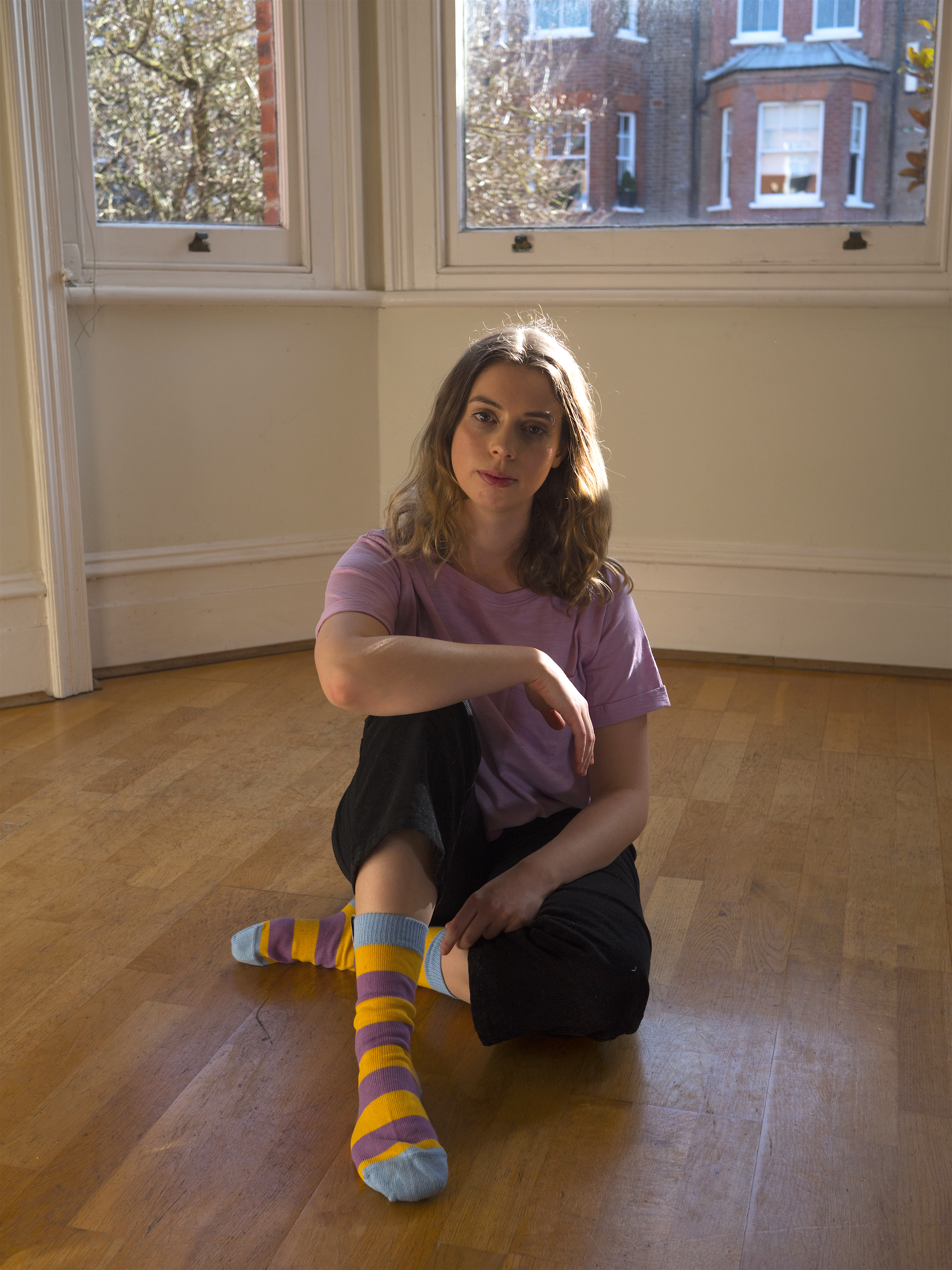
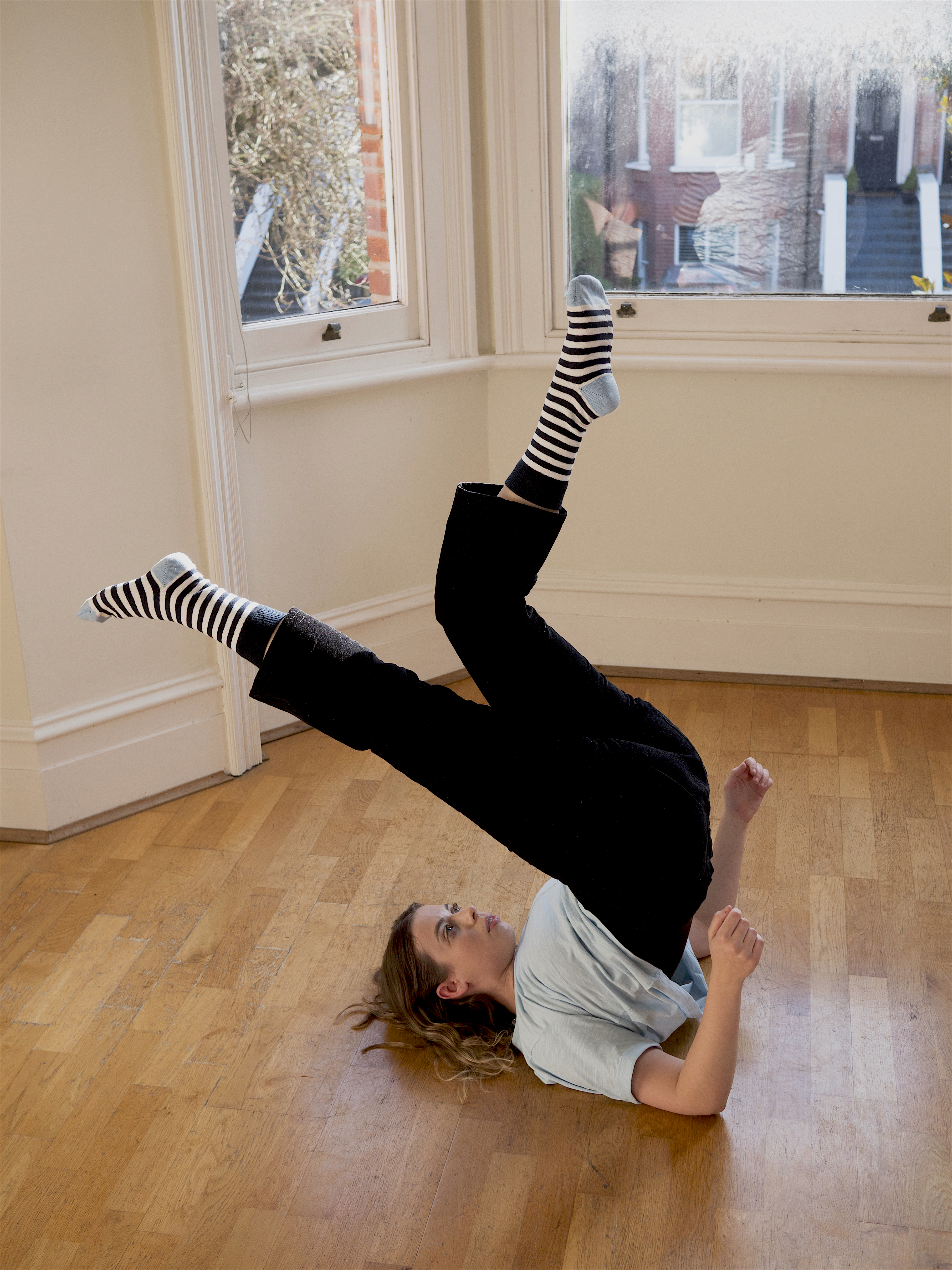
If you haven’t heard heard of Jollie’s Socks before, be prepared to for some excitement. Not only are these guys the creators of the most fun ethical socks around, they’re also on a serious mission to tackle homelessness. Founder Ed started Jollie’s after feeling increasingly helpless when walking past people sleeping rough, not knowing what he could do to help. After volunteering at a local shelter and chatting to some of the visitors, he saw a need he could meet: socks. Unlike other clothing items socks are rarely donated to homeless shelters, and when they are they don’t stick around for long. For those living on the streets, keeping feet warm and healthy is vital to survival, so socks are always in high demand. Local shelters responded immediately to the idea of receiving boxes of good quality socks, and so Ed worked to establish a sustainable one for one model that would see a pair of socks donated to local homeless shelters with every pair of Jollie’s Socks sold. He called it wear a pair, share a pair. Whilst some one for one models have faced criticism in the past, the Jollie’s ethos works because it addresses an actual need that wasn’t being met before, and it works with a pre-established structure instead of trying to create its own. They distribute their sock donations through a network of established homeless charities who focus on providing their clients with long-term support and working toward independent and sustainable futures. Each sale also works towards direct impact in your local community, as for each pair bought Jollie’s will specifically partner with a charity that’s local to your area. For example, my mum got me a pair of Jollie’s Socks for Christmas (thanks mum!), and so they donated directly to The People’s Kitchen in Newcastle, who I love. You can see their full list of partners here.
The socks themselves are also made in England, and Jollie’s now run an apprenticeship scheme in London that offers those affected by homelessness a chance to transition back into working life, as all socks are picked packed and sent by members of the Jollie’s team. Apprentices, who come through referral from local charities, become full members of the team over the course of a three month scheme, with responsibilities such as managing inventory, postage and processing orders. At the same time they’re provided with a safe place for personal growth, and Jollie’s uses this time to also help them polish CVs and search for jobs for the next stage of their life.
Jollie’s Socks stock a range of super fun and colourful socks, and in these photos you can see me wearing the yellow skipper, the dark loop, and the jester socks.
So, I think we can agree, both of these brands are doing great things. But they don’t seem to have all that much in common, beyond a flare for colour, a London base and a sense of social responsibility. But there’s actually more than meets the eye with these two.



The power of conversation
Sometimes the best collaboration stories are the ones when you don’t even know collaboration is happening. It’s not always about sitting down and calling someone out, sometimes just being a living example is enough.
As both Charlotte and Ed are Christians in London, they ended up meeting. For such a large city, as soon as you enter any type of subculture here your social circles shrink about 75%. So while neither of their brands are Christian organisations, their founders just happen to be, it did make the world significantly smaller. The amount of people who go to church and also run a sustainable fashion business? It’s not a huge number, so meeting became almost inevitable. The two first met at a weekend away five years ago, and since then have done the same business accelerator, bumped into each other around, and have made the effort to stay in touch and catch up where possible. If there’s anything I can understand, it’s the relief of chatting to someone else doing the same thing as you, someone who gets the unique struggles and triumphs of your field.
And it was in a different kind of field, the actual mud and grass filled kind, in Gloucester that something key happened. While Charlotte and Ed sat, once again catching up on life, a seed (unintentional pun) was planted. Charlotte was talking about the trip she’d just been on in India, and the power of organic and fairtrade sourcing. Ed, having put much of his focus on to the ‘made in England’ component of the business, hadn’t thought as much about fabrics until that point. It was this chat that got him thinking, and in August of 2017 Jollie’s announced their plan to switch to organic materials:
‘We think the best brands in the world produce products that prioritise people and the planet.
So for us, quite simply, our sourcing, manufacturing and fulfilment are as important, if not more important, as our giving.
Thanks to our friends at Know The Origin we’ve been challenged to learn more about cotton and to find the best of the best in both quality and supply chain sustainability. That’s why we’ve committed to use GOTS certified organic cotton in all our future sock knitting. We’re really excited about it…
We hope to be part of a group of brands who will stop ethical production being deemed as a “USP” but just normal business practice.’
Firstly, I love everything about this statement. As Ed explained to me:
‘Organic always felt like more a luxury than a necessity and I was focused on other areas of impact that took priority with Jollie’s. However, after reading into a little more about it, after seeing what Charlotte had been pioneering and watching the True cost film, I was struck that our production had to come first in our business’ impact priorities, prior to any giving we might get up to the other side. ‘
Seriously, I love this. Instead of ignoring the issue or sticking with what they knew, Ed was open about his own journey and committed to improving. Currently Jollies Skippers and Experts are being made in organic cotton, but soon all of their socks will transition. The other part of this story that I love is that Charlotte had no idea she’d played a part in this decision until she read the announcement post herself.
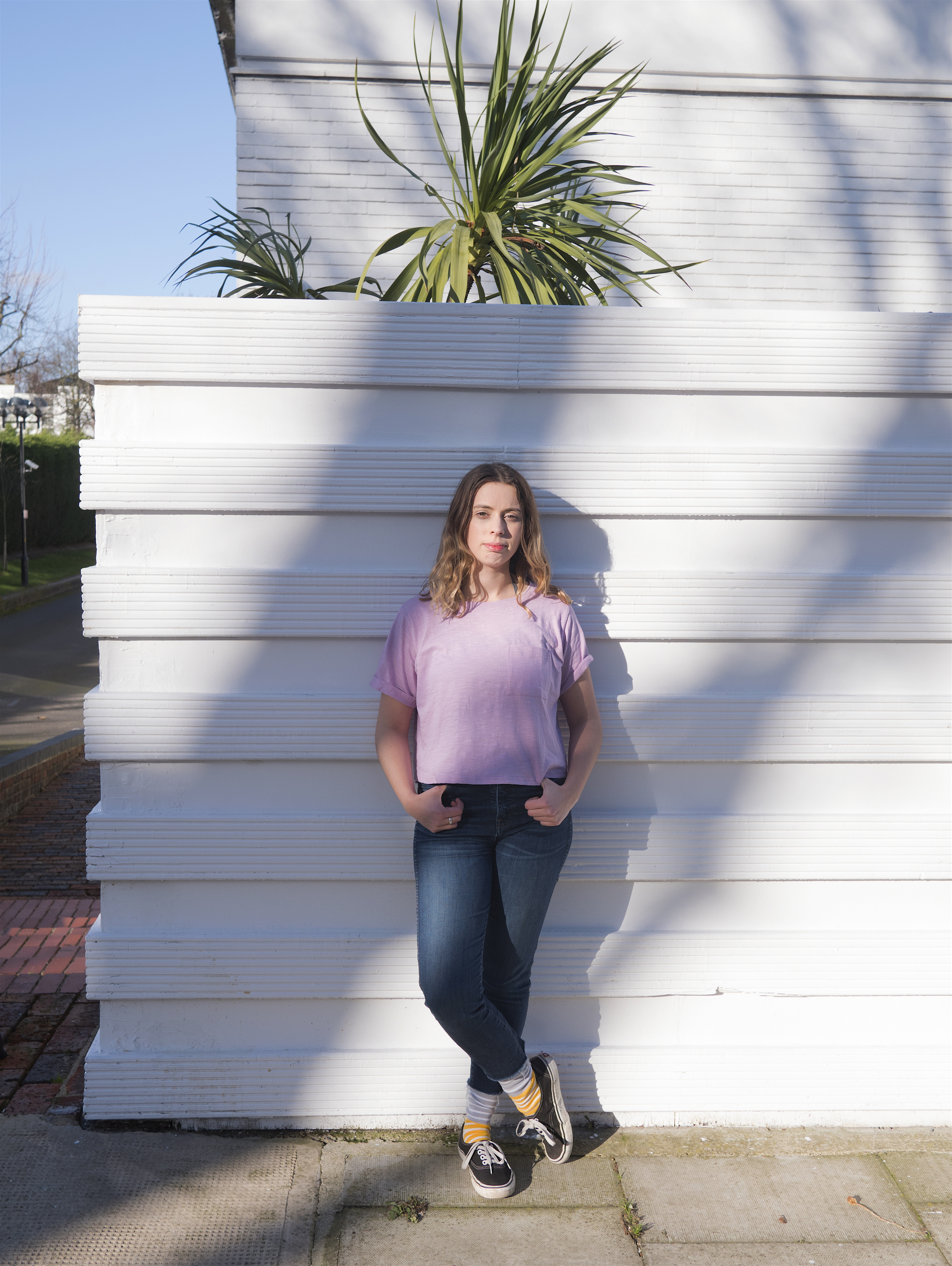
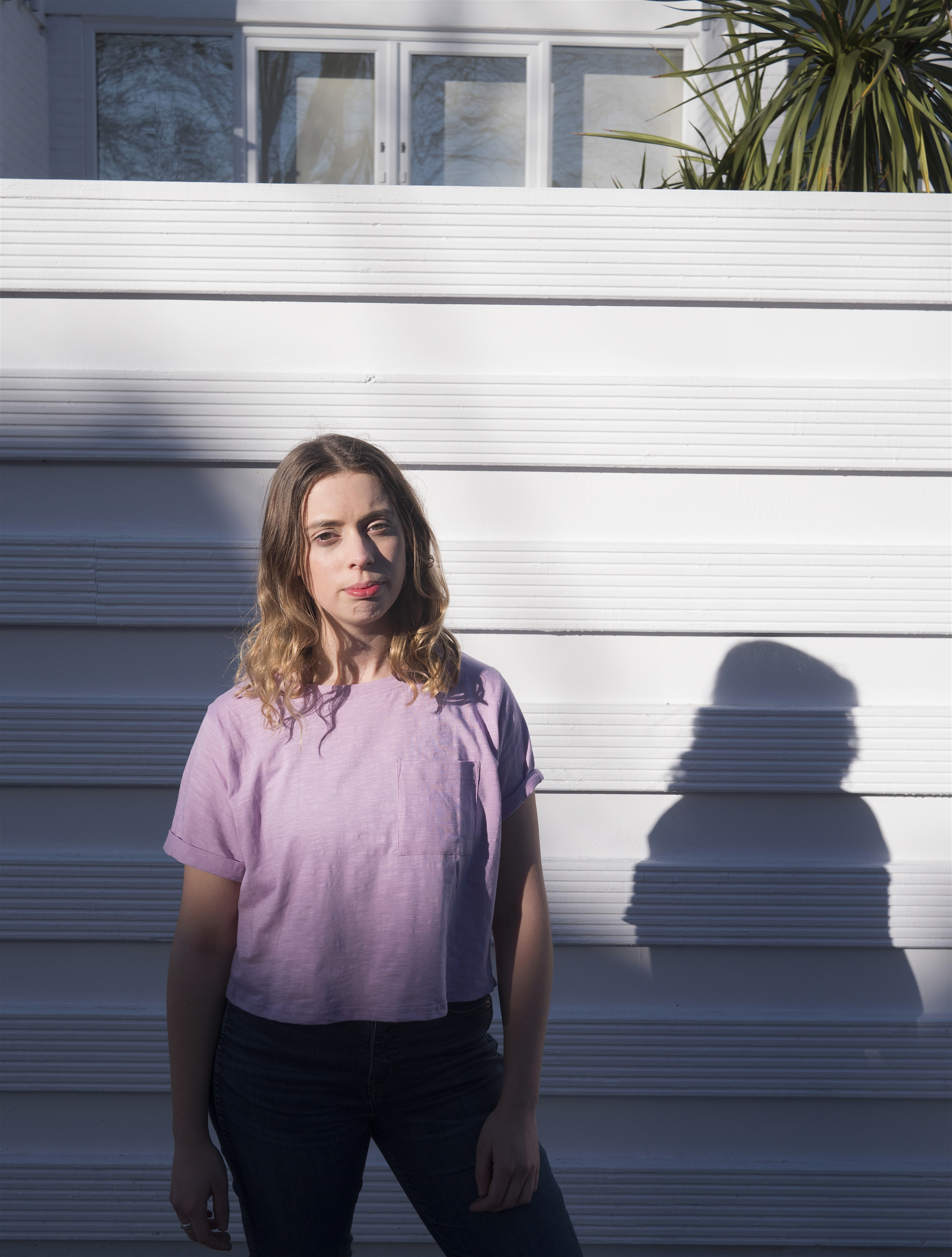
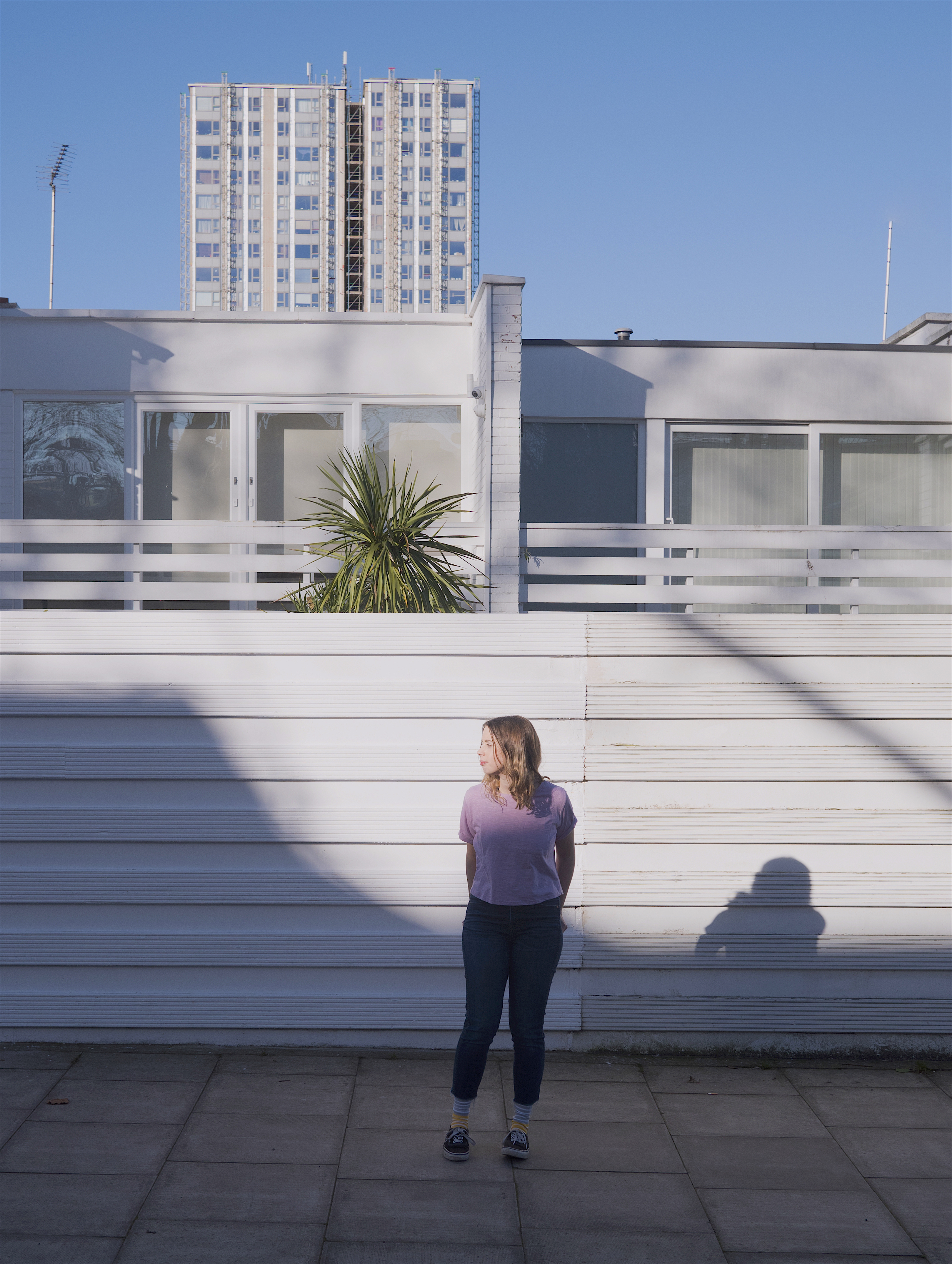
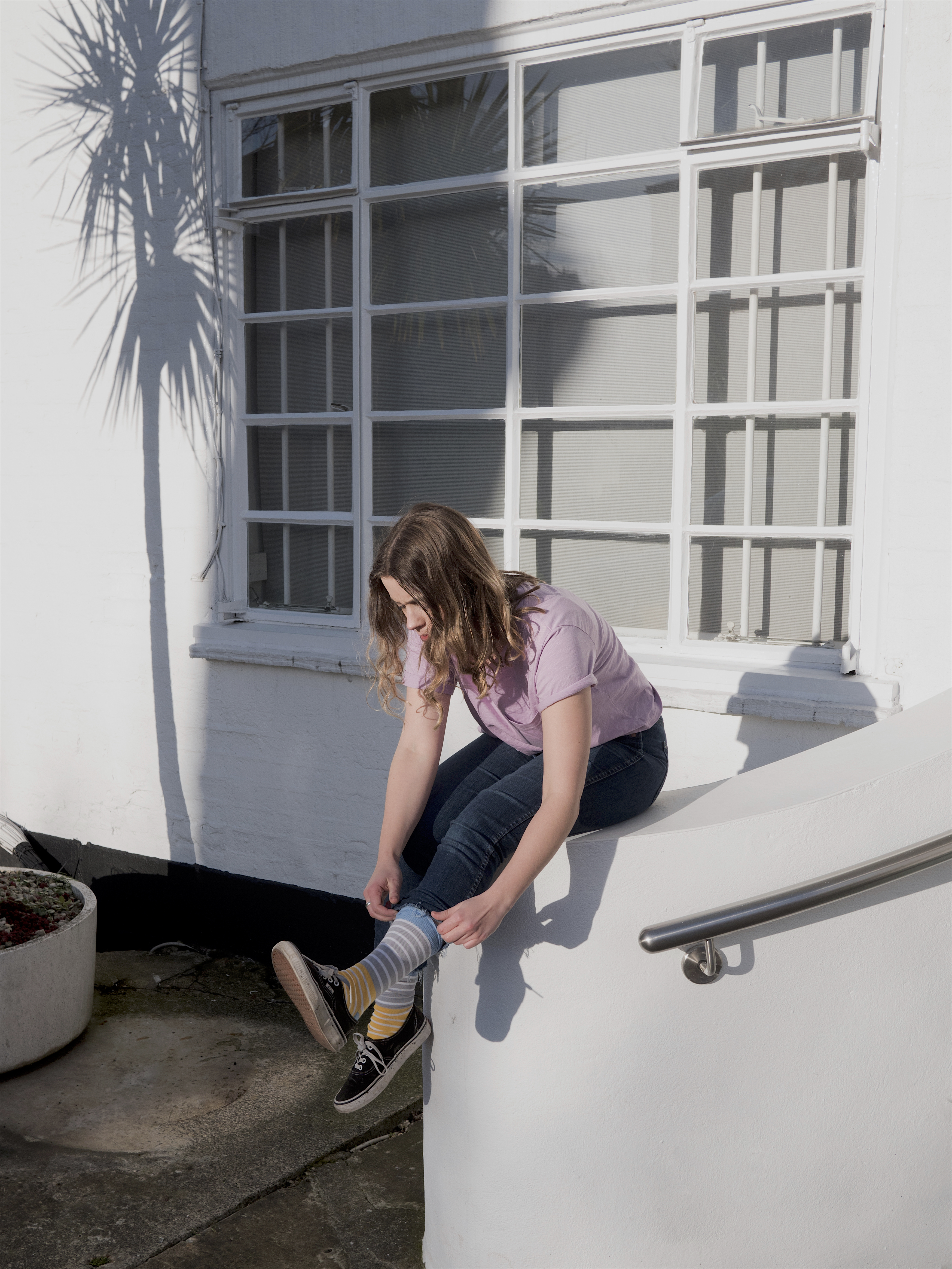
After I spoke to both Ed and Charlotte about their experience the thing that really struck me was how calm they were about the whole thing, whereas I found myself super excited. I’m sure some of this was down to the fact that Charlotte and Ed have known each other for five years, so perhaps they’re just used to it at this point, but as an outsider looking it I found the whole concept amazing, let me explain why.
We live in a mega capitalist world where articles such as the 50 greatest business rivalries aren’t surprising to us. Companies see consumption as the number one priority, and if their target audience is shopping elsewhere, that’s money that’s being taken away from them. It’s interesting, because it’s also this kind of defensive stance that often kills creative thinking:
‘powerful rivalries can be blinding, obscuring events beyond the combatants’ battlefield. Coke and Pepsi were so busy pounding the daylights out of each other that they missed an entirely new notion, and today, inconceivably, the bestselling energy drink in U.S. convenience stores isn’t made by either company. (It’s Red Bull.)’
Rivalry and fierce competition is blinding, counterproductive and stifles innovation (something which is vital to creating sustainable business) but it’s often the only option when it comes to mainstream companies. To instead see two brands communicating, resulting in one of them actually improving their product, well I don’t think that’s all that common. Sustainable and ethical fashion is, after all, a very niche target audience. To see two companies in this space openly supporting one another instead of operating out of self preservation and a false sense of fear and scarcity is plain refreshing.
This message is counter cultural. It says that there’s space for everyone at the table.
To be honest, I don’t know how we can see businesses operate in a truly ethical and sustainable way when they become huge corporations, cutting corners and hungry for money. I often think about whether a better model to push for is actually more businesses operating on a smaller scale. It’s not about brands pushing each other down to get ahead and grow grow grow, but about creating models that can be run sustainably and successfully without trampling all over each other. It allows for creativity, excitement and entrepreneurial spirit without causing harm to others. It’s one of the main reasons why I like being an ethical blogger, where we can chat and champion each other in equal measure, but seeing it play out on the brand side of things shows that there is a different way to do things. As Charlotte told me:
‘I’m all for collaborating and supporting each other. If we want this space to grow then we have work together! I want to be a part of changing this industry for the better, so that Know The Origin ultimately is no longer needed. I think when the focus becomes supporting or giving to others and not what you have or want to get, I think it makes you a lot less fearful and appreciative of incredible people out there doing awesome stuff.’
I don’t think I’m the only one that finds this attitude incredible, and also so encouraging.
When you spend your whole life hyper aware of all the things we’re doing wrong, it’s the stories like these that keep you going. I understand the point Charlotte makes about Know The Origin no longer being needed, but I think it’s their exact approach that makes them so necessary in our current consumer landscape. I hope that the future of this community will be filled with more stories like this one. That we will approach each other with hope, optimism and encouragement. That, while both these companies make ethical fashion beautiful and fun, they also model the kind of attitude that is going to get us where we need to be. When the world feels like a total mess, it’s the people like Charlotte and Ed that are going to get us out of it.



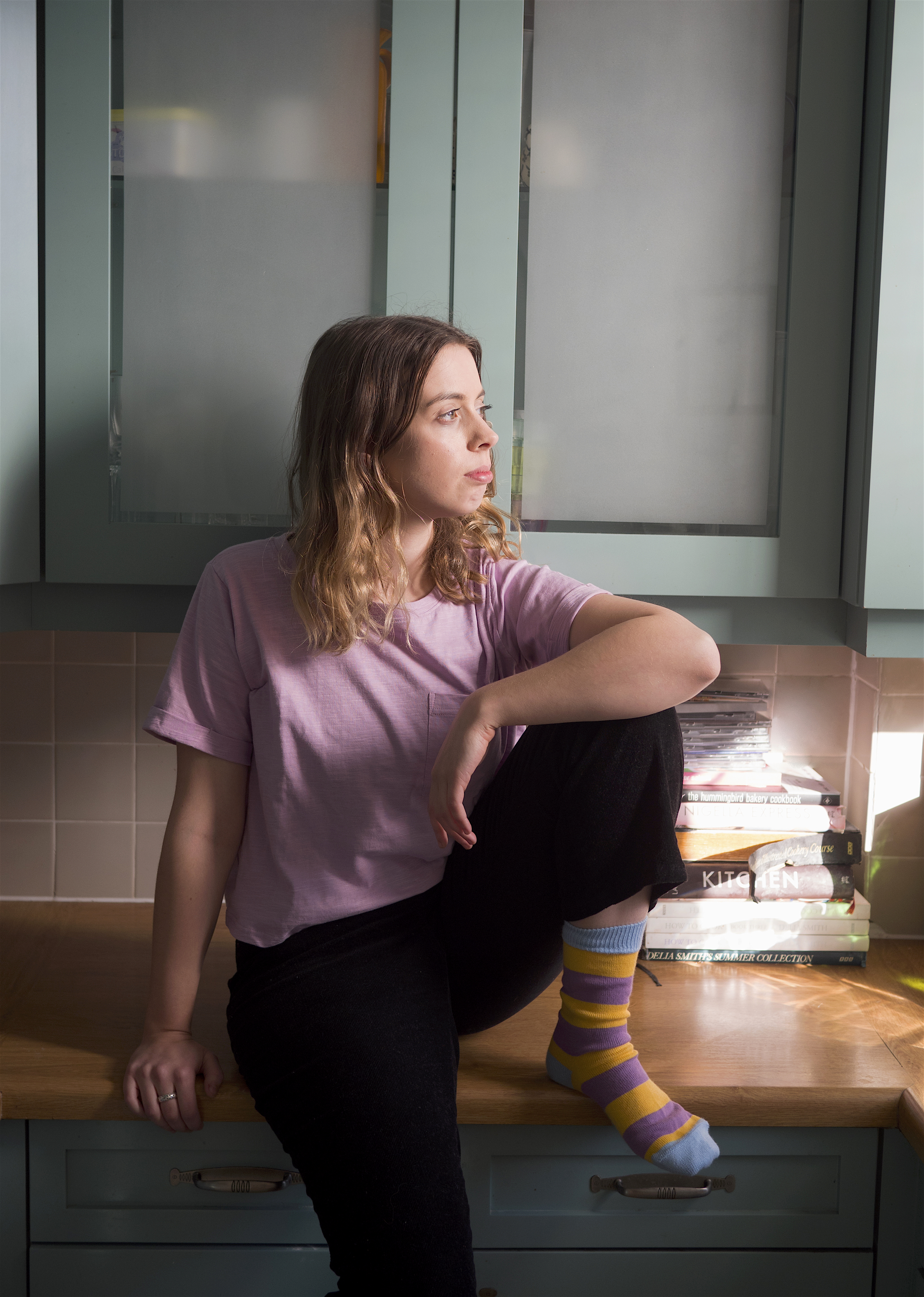
Photography by Christian Kinde
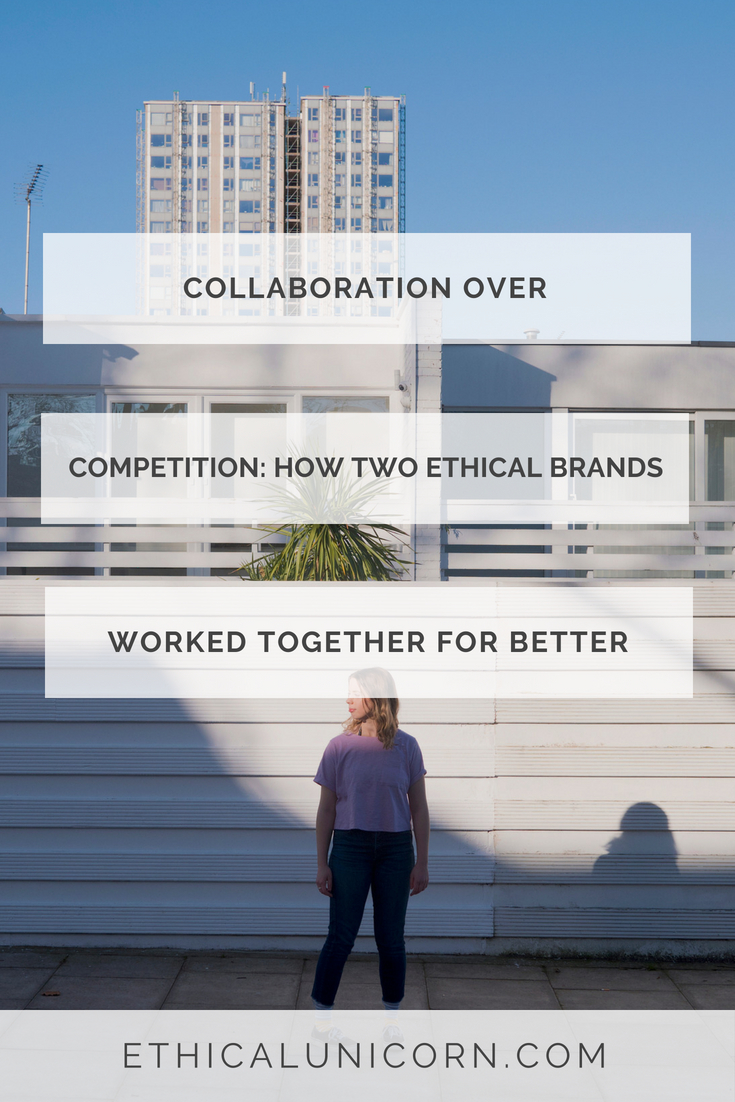

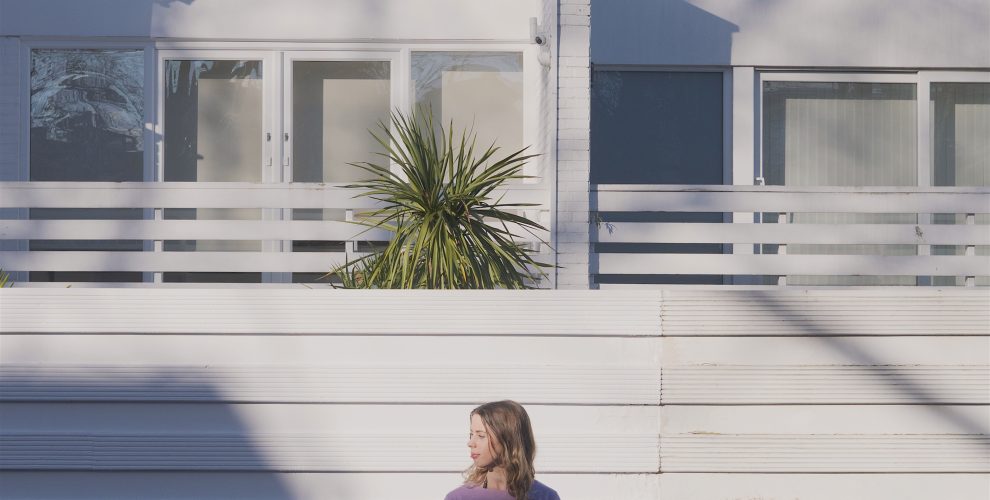




1 Comments